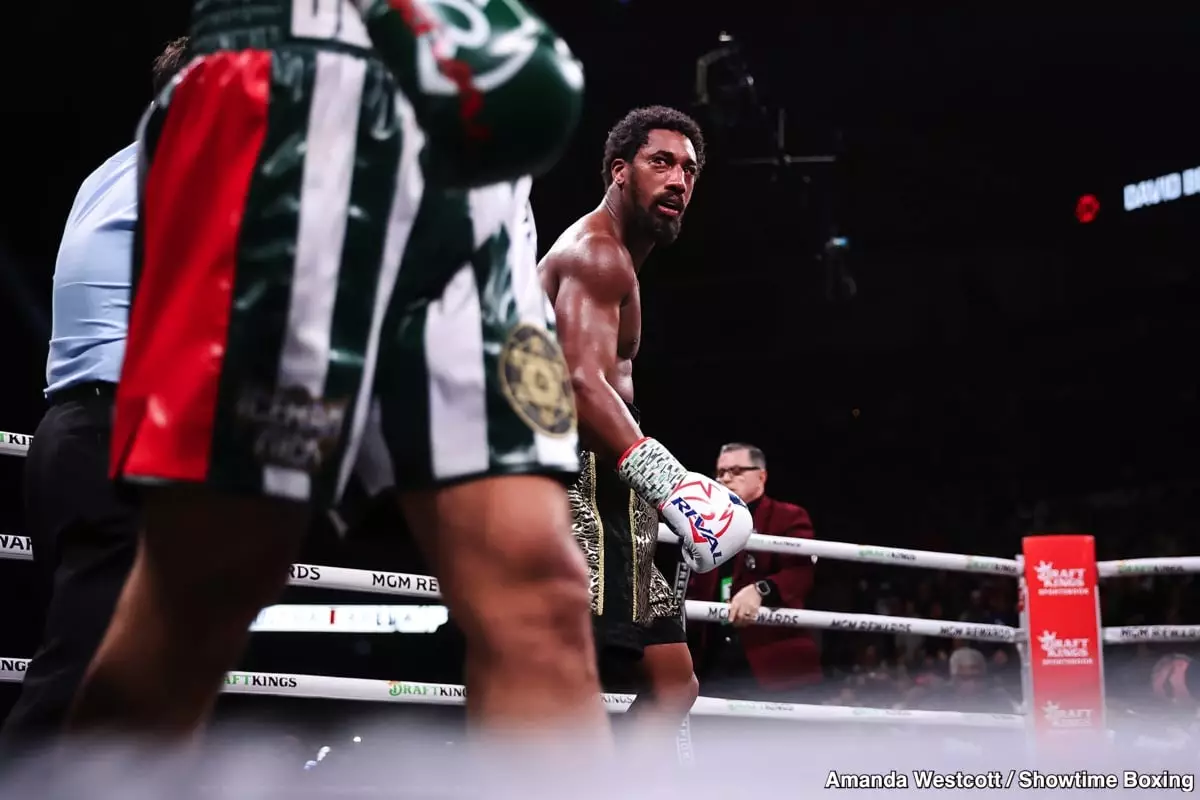Demetrius Andrade, a seasoned fighter with a commendable record, has recently found himself in the crosshairs of scrutiny following his bout with David Benavidez, often referred to as ‘The Mexican Monster.’ Andrade’s loss in this high-profile match on November 25, 2023, triggered a wave of criticism from fans, but it also illuminated a crucial aspect of his career: the struggle to secure fights against top-tier opponents. Despite the setbacks, Andrade insists that he has always aimed to compete against the best, emphasizing that he was left with little choice but to face a much larger and younger opponent when no one else was willing to step into the ring with him.
The stark size difference between Andrade and Benavidez played a pivotal role in their fight. Andrade, who typically fights at the middleweight level, encountered Benavidez—an athlete who appeared significantly larger, almost like a cruiserweight after rehydrating post-weigh-in. This disparity in size not only presented a physical challenge for Andrade but also shifted the narrative surrounding their match. Many fans have come to empathize with Andrade’s situation, recognizing that the defeat against a substantially larger opponent does not tarnish his reputation as a fighter. Moreover, Andrade’s courage in opting to fight an opponent of Benavidez’s caliber speaks volumes about his dedication to the sport.
One of the underlying frustrations for Andrade has been the reluctance of other elite boxers to face him in the ring. Big names like Canelo Alvarez, Jermall Charlo, and Gennadiy Golovkin have evaded matchups with Andrade over the years, leaving him to battle less renowned contenders. Such avoidance not only runs the risk of stalling a fighter’s career but can lead to feelings of isolation within the sport. Andrade’s comments indicated a yearning for a more competitive environment, where fighters are willing to challenge each other rather than protect their records.
Following his defeat to Benavidez, Andrade has faced another critical hurdle: an absence from the ring. With over a year away from competition due to various complications, including management decisions, Andrade’s career trajectory is at a crossroads. At 35, the time taken away from active competition could very well jeopardize his standing in the sport, particularly as younger fighters continue to emerge and claim their own stakes within the boxing hierarchy. The urgency to return to the ring, along with his evolving strategy, becomes paramount for Andrade to remain relevant in such an unforgiving landscape.
Andrade’s management has come under the spotlight as well. Historically, his defensive style coupled with ineffective management choices stifled his ability to secure lucrative and meaningful matches. His partnership with Eddie Hearn did provide some exposure, but it was often paired with bouts against domestic-level competition, ultimately failing to elevate his career to the expectations he had. Andrade’s narrative illustrates a broader theme in boxing where fighters must balance skill, opportunities, and timing to forge successful careers amidst towering obstacles.

